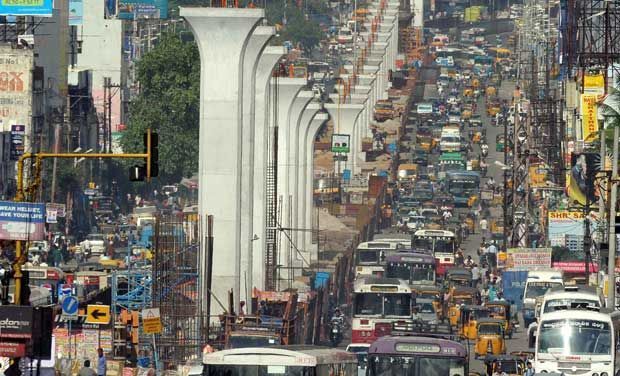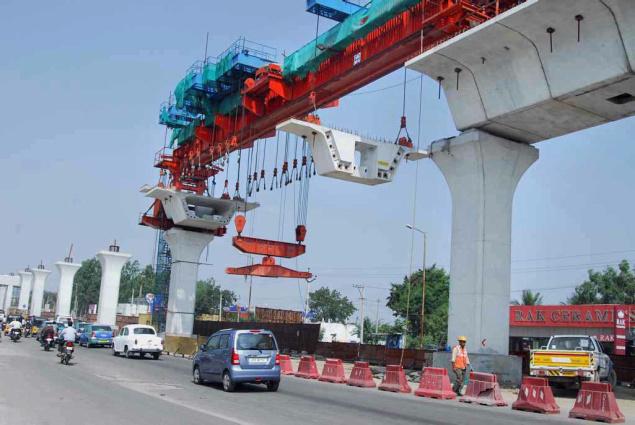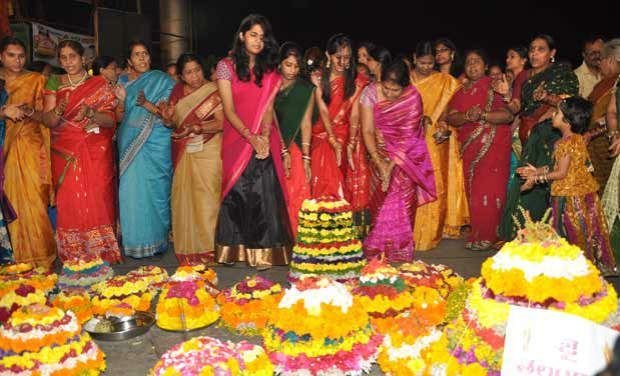Hyderabad :
Seven years of education immediately preceding the qualifying examination has been taken as the basis for determining the ‘local candidature’ in accordance with Andhra Pradesh Public Employment Order 1975 for the division of government employees between Telangana and the residuary state of Andhra Pradesh in the draft guidelines issued by CR Kamalanathan Committee.
The committee issued the guidelines on Friday for allocation of the state services employees, who are around 51,000, between Telangana and Andhra Pradesh and published the same on the public domain – www.reorganisation.ap.gov.in.
As per the 19 pages of guidelines, Article 371-D of the constitution will continue to remain in force in relation to the states of Telangana and Andhra Pradesh.
All the state-level posts (non-territorial) in departments would be equitably apportioned between the two states in the ratio of population (58.32 for AP and 41.68 for Telangana) or on the basis of geographic intensity of activity in the two states. State governments will determine the departments, state-level posts that are to be divided on the basis of geographic intensity of activities of the departments.
All sanctioned civil services and civil posts that existed immediately prior to the appointed day (June 1, 2014) shall be allotted to both the states. However, sanctioned posts do not include posts approved to be filled-in on contract or by outsourcing.
State services employees (allocable posts) will be given option to indicate their preference to service in either of the two states and allocations will be made after taking their option into consideration. However, it shall be open to the central government to allot the person to any successor state in the administrative interest or in the exigencies of public service. The allocation shall be done in order of seniority as available on June 1, 2014.
Those who have opted, who are ‘local candidates’ relatable to the state to which they have opted, shall, in order of their seniority, be considered for allocation first. If allocable posts in that category remain, others will be considered in reverse order of seniority by allotting the junior most.
Employees who are not local in relation to both states will be allocated on the basis of nativity or domicile based on due verification and certification of nativity or domicile by the head of the department concerned. Employees belonging to SC/ST communities shall be considered for allocation on the basis of their option, if they are local candidates or domicile. In the event an SC or ST employee has not exercised his option they will be allocated to the State of their domicile, as determined on their service register.
Class IV employees and drivers of light vehicles shall be allocated on the basis of option or local candidature, as far as possible. Spouse of All-India Services officers who is a state government employee shall be allocated, where so desired by the spouse, to the state to which AIS officer is allocated. Spouses in state government and related state government institutions shall as far as practicable be allocated to the same state, after considering their options.
Cases of alleviation of extreme personal hardship of state government employees will be exception to the principle. Widowed, legally separated and divorced women employees may be considered for allocation to the state to which option is exercised. Handicapped persons of more than 40 per cent disability may be allocated on the basis of option, subject to the procedure prescribed by the state government. Employees facing serious medical hardships (cancer, by-pass surgery, kidney transplantation of failure) be considered for allotment on special ground on priority on the basis of their option, subject to strict proof of verification.
Employees have to exercise their options in the prescribed proforma published along with the guidelines and submit the same to the Member-Secretary, Advisory Committee, GA State Reorganisation Department, AP Secretariat electronically and through the proper channel indicating their preference for either of the states within two weeks from the date of public notification calling for options.
Scrutiny of statements made in the option forms shall be done and factual accuracy of the statements made therein certified by the head of the department under whom the employee is working. If no option is received within the prescribed time, or where an employee is willing to be allotted to either of the two states such person shall be allotted based on the other criteria. Options once exercised cannot be changed.
After the distribution of posts is finalised, a tentative allocation list for all employees will be drawn up.Any objections by employees should be made within two weeks from the date of the publication of the tentative list.
The ambiguity over their temporary allocation among the employees has been finally put to rest with the issue of draft guidelines by Kamalanathan Committee. We are mostly satisfied by the guidelines though we have certain reservations pertaining to ‘local status’. We will submit our representations, if any, to the committee as advised.
— KV Krishanaiah, AP Gazetted Officers Assocation president
The draft guidelines issued by the CR Kamalnathan Committee lack clarity on several counts. In spite of our representation to the committee through our Chief Minister and Chief Secretary, none of the objections and suggestions were considered. We will decide our future course of action in the meeting with employees on Saturday and submit our objections to the committee as stated within 10 days. — G Deviprasad Rao, TNGO president
371-D in force
Seven years of education immediately preceding the qualifying examination basis for ‘local candidature’ in accordance with Andhra Pradesh Public Employment Order 1975
Committee draft guidelines posted on website www.reorganisation.ap.gov.in
Article 371-D of the Constitution will continue to remain in force in relation to the states of Telangana and Andhra Pradesh
State services employees (allocable posts) will be given option to indicate their preference to service in either of the two states
Employees belonging to SC/ST communities shall be considered for allocation on the basis of their option if they are local candidates or domicile
The allocation shall be done in order of seniority as available on June 1, 2014
Options once exercised cannot be changed under any circumstance
source: http://www.newindianexpress.com / The New Indian Express / Home> States> Telangana / by Express News Service / July 26th, 2014




